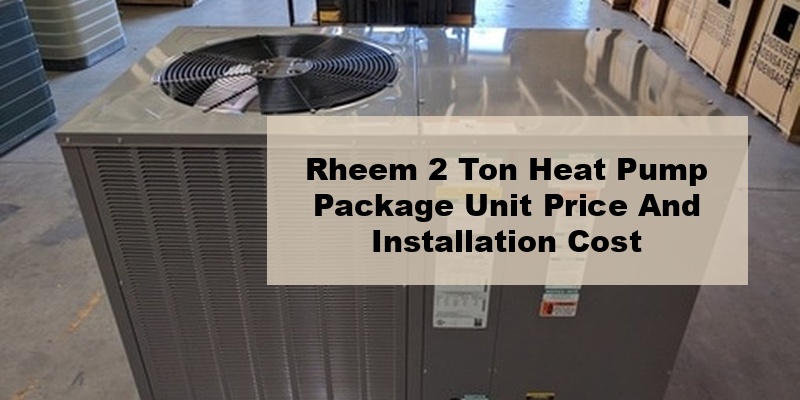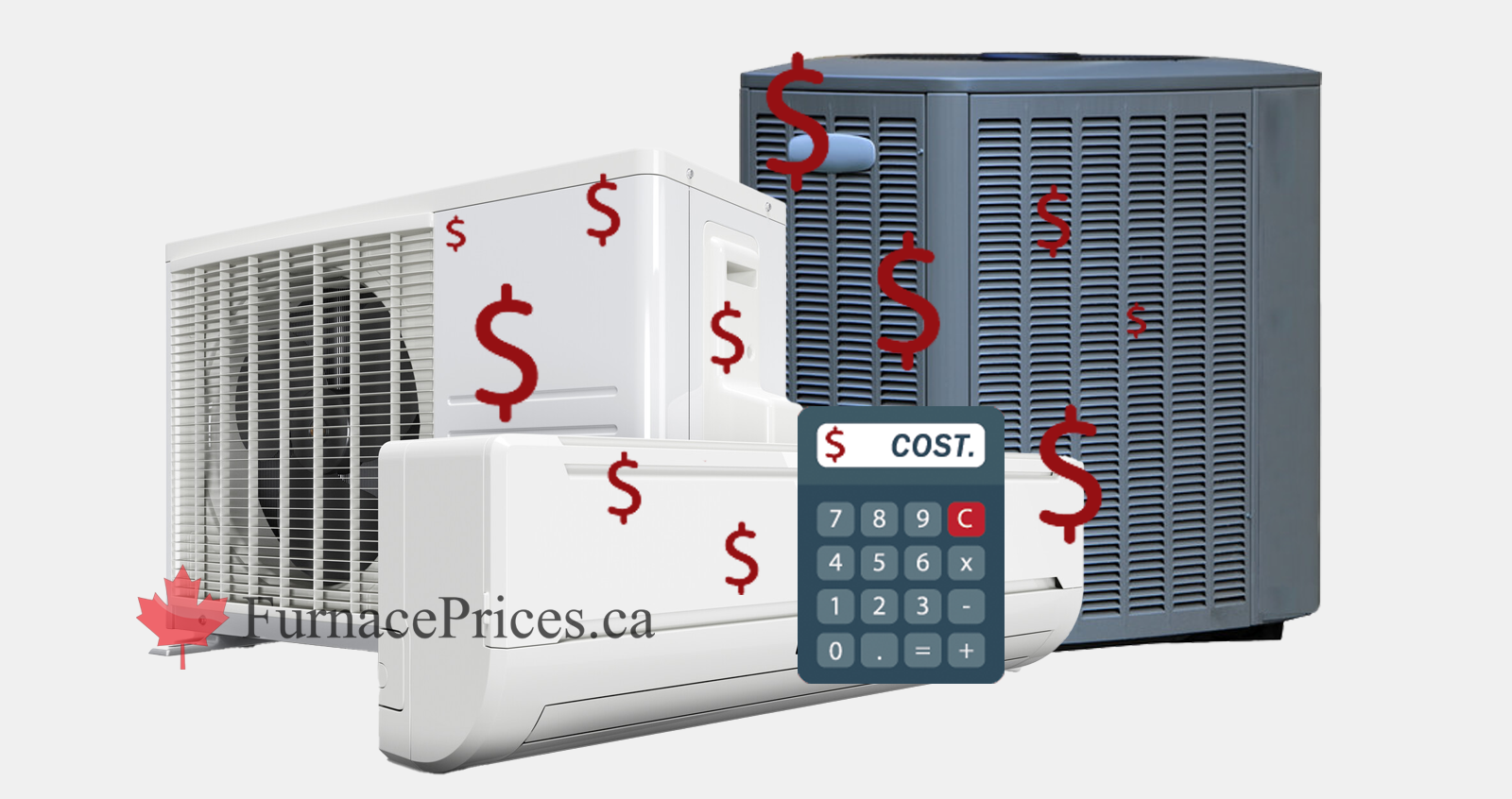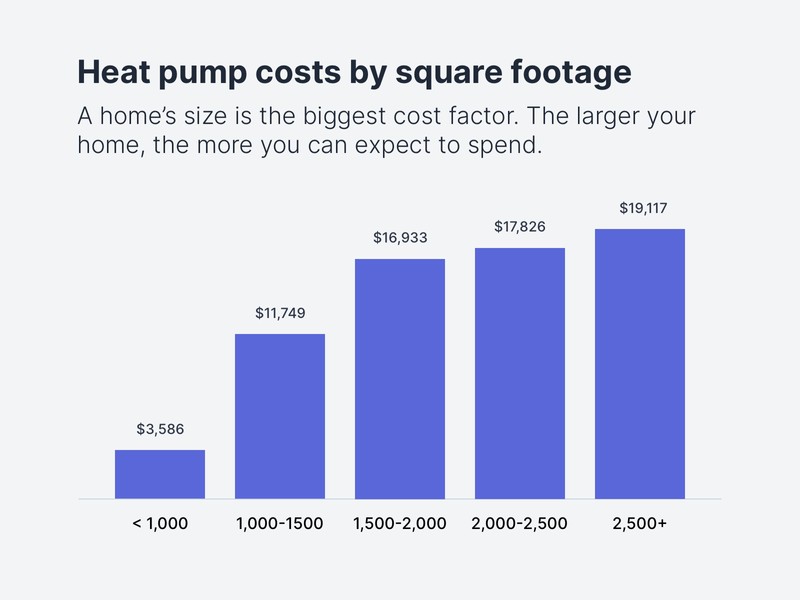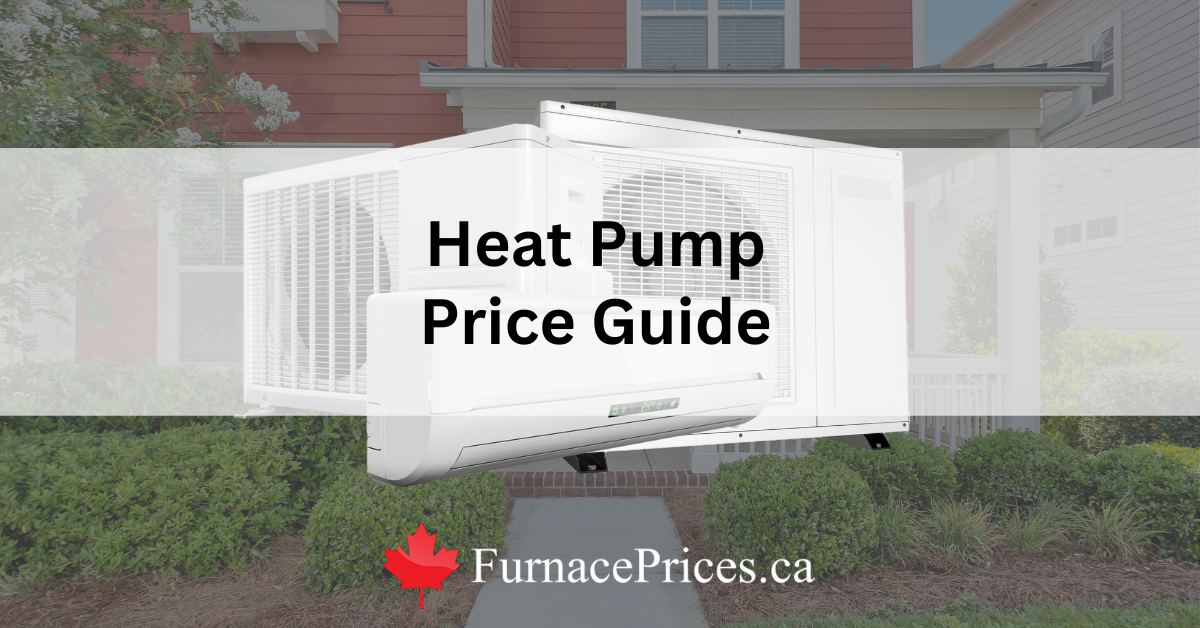How Much Should A 2 Ton Heat Pump Cost

Frequently Asked Questions: 2 Ton Heat Pump Costs
Considering a 2-ton heat pump for your home or small business? Understanding the costs involved is crucial for budgeting and making informed decisions. This FAQ addresses common questions about pricing, factors influencing costs, and how to ensure you get the best value for your investment.
Question 1: What is the average cost of a 2-ton heat pump, installed?
The average cost to purchase and install a 2-ton heat pump typically ranges from $3,500 to $7,000. This price range includes the cost of the unit itself, labor for installation, and any necessary permits. However, this is a broad estimate, and the actual cost can vary significantly based on several factors that we'll cover in more detail.
- Lower end of the range ($3,500-$5,000): Often reflects a less efficient model or a simpler installation with minimal ductwork modifications.
- Higher end of the range ($5,000-$7,000): Usually indicates a higher-efficiency unit, more complex installation requirements (e.g., ductwork changes, electrical upgrades), or premium brands.
It's crucial to obtain multiple quotes from reputable HVAC contractors in your area to get a precise estimate for your specific situation.
Question 2: What factors influence the price of a 2-ton heat pump installation?
Several factors can significantly impact the final cost of your 2-ton heat pump installation. Understanding these factors will help you evaluate quotes and make informed choices:
- Heat Pump Efficiency (SEER and HSPF): The Seasonal Energy Efficiency Ratio (SEER) measures cooling efficiency, and the Heating Seasonal Performance Factor (HSPF) measures heating efficiency. Higher SEER and HSPF ratings mean greater energy savings over time, but also a higher initial purchase price. A heat pump with a higher SEER and HSPF rating will generally cost more upfront.
- Brand and Model: Established brands with a reputation for reliability and advanced features often command a premium price. Within each brand, different models offer varying levels of efficiency and features, affecting the cost. Research different brands and models to find the best balance between price and performance for your needs. Some well-known brands are Carrier, Trane, Lennox, and Rheem.
- Installation Complexity: A straightforward replacement of an existing heat pump is typically less expensive than a new installation requiring ductwork modifications, electrical upgrades, or changes to the refrigerant lines. The more complex the installation, the higher the labor costs will be. Factors such as the accessibility of the installation location and the condition of existing ductwork can also influence the complexity.
- Ductwork Condition: If your existing ductwork is damaged, leaking, or inadequately sized, it may need to be repaired or replaced. Ductwork repairs or replacement can add significantly to the overall cost. An HVAC contractor should inspect your ductwork as part of the quoting process to identify any necessary repairs or modifications.
- Electrical Upgrades: Depending on the heat pump's electrical requirements and the capacity of your existing electrical panel, you may need to upgrade your electrical system. Electrical upgrades can add to the cost, but they are essential for ensuring the safe and reliable operation of your new heat pump.
- Permits and Inspections: Most municipalities require permits and inspections for HVAC installations. The cost of permits can vary depending on your location. Be sure your HVAC contractor includes the cost of permits in their quote.
- Refrigerant Type: Newer, environmentally friendly refrigerants like R-410A can be more expensive than older refrigerants that are being phased out. The type of refrigerant used in the heat pump can affect the unit's price.
- Geographic Location: Labor costs and material prices can vary depending on your geographic location. Areas with a higher cost of living typically have higher installation costs.
- Contractor's Labor Rates: HVAC contractors charge different labor rates. It's important to get quotes from multiple contractors to compare pricing. Be sure to ask for a detailed breakdown of labor costs.
- Seasonal Demand: Prices may be higher during peak seasons (summer and winter) due to increased demand. Consider scheduling your installation during the off-season (spring or fall) to potentially save money.
Question 3: What are the ongoing operating costs of a 2-ton heat pump?
While the initial purchase and installation costs are important, the ongoing operating costs of a heat pump should also be considered. These costs include electricity consumption for heating and cooling.
- Electricity Usage: Heat pumps use electricity to operate, and the amount of electricity they consume depends on factors such as the unit's efficiency (SEER and HSPF), the climate, your thermostat settings, and the insulation of your home.
- Maintenance: Regular maintenance is essential for ensuring the efficient and reliable operation of your heat pump. This includes cleaning the coils, changing the filters, and inspecting the system for any problems. Neglecting maintenance can lead to reduced efficiency and increased energy consumption.
- Repairs: Like any mechanical system, heat pumps can occasionally require repairs. The cost of repairs can vary depending on the nature of the problem and the cost of parts.
To estimate your operating costs, consider the heat pump's SEER and HSPF ratings and your average energy consumption. You can also use online calculators to estimate your energy costs based on your location and usage patterns.
Question 4: Are there any rebates or incentives available for purchasing a 2-ton heat pump?
Yes, various rebates and incentives are often available to help offset the cost of purchasing and installing a high-efficiency heat pump. These incentives can come from federal, state, and local governments, as well as utility companies. Taking advantage of these incentives can significantly reduce your overall cost.
- Federal Tax Credits: The federal government offers tax credits for energy-efficient home improvements, including heat pumps. The specific amount of the credit and eligibility requirements can vary from year to year. Check the IRS website for the latest information.
- State Rebates: Many states offer rebates for energy-efficient appliances, including heat pumps. Check your state's energy office or utility company website for details.
- Local Rebates: Some cities and counties offer rebates for energy-efficient upgrades. Check your local government's website for information.
- Utility Company Rebates: Many utility companies offer rebates for customers who install high-efficiency heat pumps. Check your utility company's website or contact them directly to inquire about available rebates.
Your HVAC contractor may also be aware of available rebates and incentives in your area. Be sure to ask them about potential savings opportunities.
Question 5: How do I choose the right 2-ton heat pump for my home?
Selecting the right 2-ton heat pump involves considering several factors to ensure it meets your heating and cooling needs efficiently and effectively. Here's a breakdown:
- Size and Capacity: A 2-ton heat pump is generally suitable for homes between 800 and 1,200 square feet, but this is just an estimate. An HVAC professional should perform a load calculation to determine the precise heating and cooling needs of your home. Factors like insulation, window efficiency, and climate all affect the required capacity.
- Efficiency (SEER and HSPF): Choose a heat pump with a high SEER rating for cooling efficiency and a high HSPF rating for heating efficiency. Higher ratings mean lower energy bills over time, but they also typically come with a higher upfront cost. Determine the payback period based on your energy usage and the price difference between different models.
- Climate: The climate in your area will influence the type of heat pump you need. In colder climates, a heat pump with a higher HSPF rating is essential for efficient heating. Some heat pumps are specifically designed for colder climates and can provide effective heating even in sub-freezing temperatures.
- Features: Consider features such as variable-speed blowers, multi-stage compressors, and smart thermostats. These features can improve comfort, efficiency, and control over your home's temperature.
- Brand Reputation and Warranty: Choose a reputable brand with a good warranty. A longer warranty provides peace of mind and protection against potential repair costs. Research different brands and read customer reviews to assess their reliability and performance.
- Professional Installation: Proper installation is critical for ensuring the efficient and reliable operation of your heat pump. Choose a licensed and experienced HVAC contractor with a good reputation. Ask for references and check online reviews.
Question 6: What are the signs that I need a new heat pump, and is it more cost-effective to repair or replace my old one?
Recognizing the signs that your heat pump is failing can help you avoid costly repairs and ensure your home remains comfortable. Several factors influence whether to repair or replace your existing unit:
- Age of the Unit: Heat pumps typically last 10-15 years. If your unit is approaching the end of its lifespan, replacement may be a more cost-effective option.
- Frequent Repairs: If your heat pump requires frequent repairs, it may be a sign that it's nearing the end of its life. Repeated repairs can be costly and disruptive.
- Rising Energy Bills: A sudden increase in your energy bills could indicate that your heat pump is losing efficiency. This could be due to worn-out components or other problems.
- Uneven Heating or Cooling: If some rooms in your home are warmer or cooler than others, it could be a sign that your heat pump is not functioning properly.
- Strange Noises: Unusual noises, such as banging, hissing, or grinding, could indicate a mechanical problem with your heat pump.
Repair vs. Replace:
- Consider the cost of repairs: If the repair cost is more than 50% of the cost of a new unit, replacement is generally the more economical option.
- Evaluate the unit's age and efficiency: If your unit is old and inefficient, replacing it with a new, high-efficiency model can save you money on energy bills in the long run.
- Consult with an HVAC professional: An HVAC professional can assess the condition of your heat pump and provide you with a recommendation on whether to repair or replace it. They can also provide you with a quote for a new unit.
Question 7: What questions should I ask an HVAC contractor before hiring them to install my 2-ton heat pump?
Before entrusting an HVAC contractor with your heat pump installation, it's crucial to ask the right questions to ensure you're working with a qualified and reliable professional. Here's a list of essential questions:
- Are you licensed and insured? Always verify that the contractor is licensed to operate in your state and carries adequate insurance coverage. This protects you from liability in case of accidents or damages.
- Do you have experience installing 2-ton heat pumps? Ask about their experience specifically with 2-ton units and the brand you are considering. A contractor with relevant experience is more likely to perform a proper installation.
- Can you provide references from past customers? Contacting previous clients can give you valuable insights into the contractor's workmanship, customer service, and overall reliability.
- Will you perform a load calculation to determine the correct size heat pump for my home? A load calculation is essential for ensuring that the heat pump is properly sized for your home's heating and cooling needs. Avoid contractors who simply recommend a size based on square footage alone.
- What is included in the quote? Get a detailed written quote that outlines all costs, including the price of the unit, labor, permits, and any other associated fees. Clarify what is *not* included in the quote to avoid surprises later.
- What is the warranty on the unit and the installation? Understand the warranty coverage for both the heat pump itself and the contractor's installation work. A good warranty provides protection against defects and workmanship errors.
- How long will the installation take? Ask for an estimated timeline for the installation process. This will help you plan accordingly and minimize disruptions to your household.
- What type of refrigerant does the heat pump use? Inquire about the refrigerant used in the heat pump, as newer, more environmentally friendly refrigerants may have different costs and maintenance requirements.
- Do you offer financing options? Some contractors offer financing options to help you spread out the cost of the installation.
- What energy efficiency rating (SEER/HSPF) is best for my climate and budget? A knowledgeable contractor can help you navigate SEER and HSPF ratings to optimize for your climate and provide the best value.
By asking these questions, you can gather the information you need to make an informed decision and choose an HVAC contractor who will provide a high-quality installation at a fair price.










